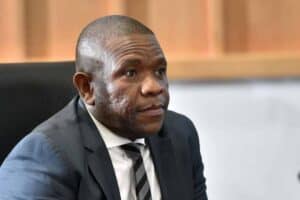Anticrime activist Yusuf Abramjee said the threats against Baleni were worrying and showed how criminals would go any lengths to intimidate and put fear into people.

The fight against crime and corruption continues to face fierce resistance, which highlights the need for an extensive system of protecting whistleblowers, according to experts.
Corruption Watch director Karam Singh said whistle-blowers in society and government faced heightened risks. Saying it was not easy to be a whistleblower, Singh added it was important for society to condemn these threats and that government needed to do more to protect the whistle-blowers.
Singh said the system in terms of witness protection only really “kicked” in when there was an on-going prosecution and when one was an active witness to that prosecution.
“We need to have a system because, in those circumstances, there is a determination of potential risks that affect whistle-blowers. Some type of mechanisms need to be put in place to protect their identity and, if it is exposed or compromised, security is put in place to provide that kind of protection,” he said.
ALSO READ: Snitches get stitches, but thanks to the brave whistleblowers
With the presidency’s director-general, Phindile Baleni, allegedly receiving death threats – to ensure President Cyril Ramaphosa released suspects associated with the Babita Deokaran murder case and to advise him not proceed with state capture findings – the Institute for Security Studies researcher Gareth Newham said it would not affect the fight against crime and corruption.
Anticrime activist Yusuf Abramjee said the threats against Baleni were worrying and showed how criminals would go any lengths to intimidate and put fear into people.






